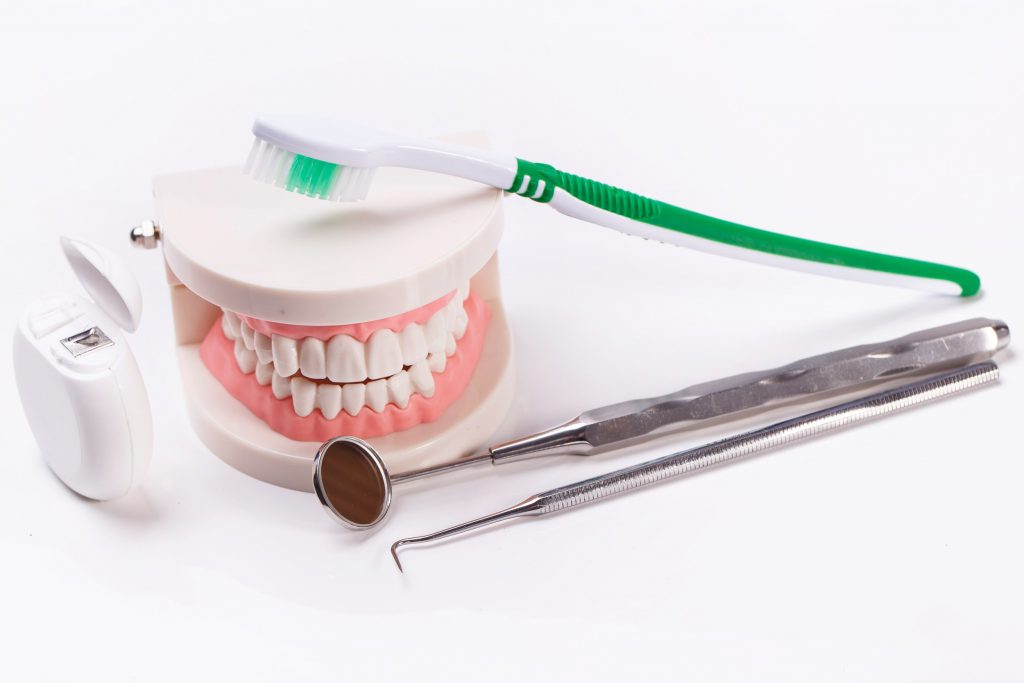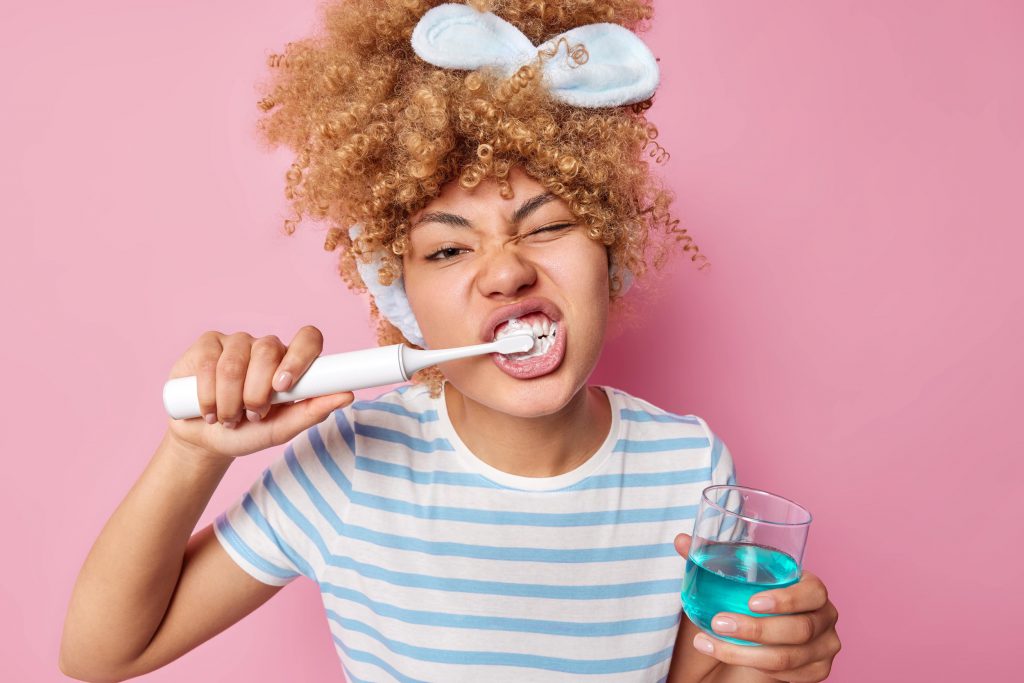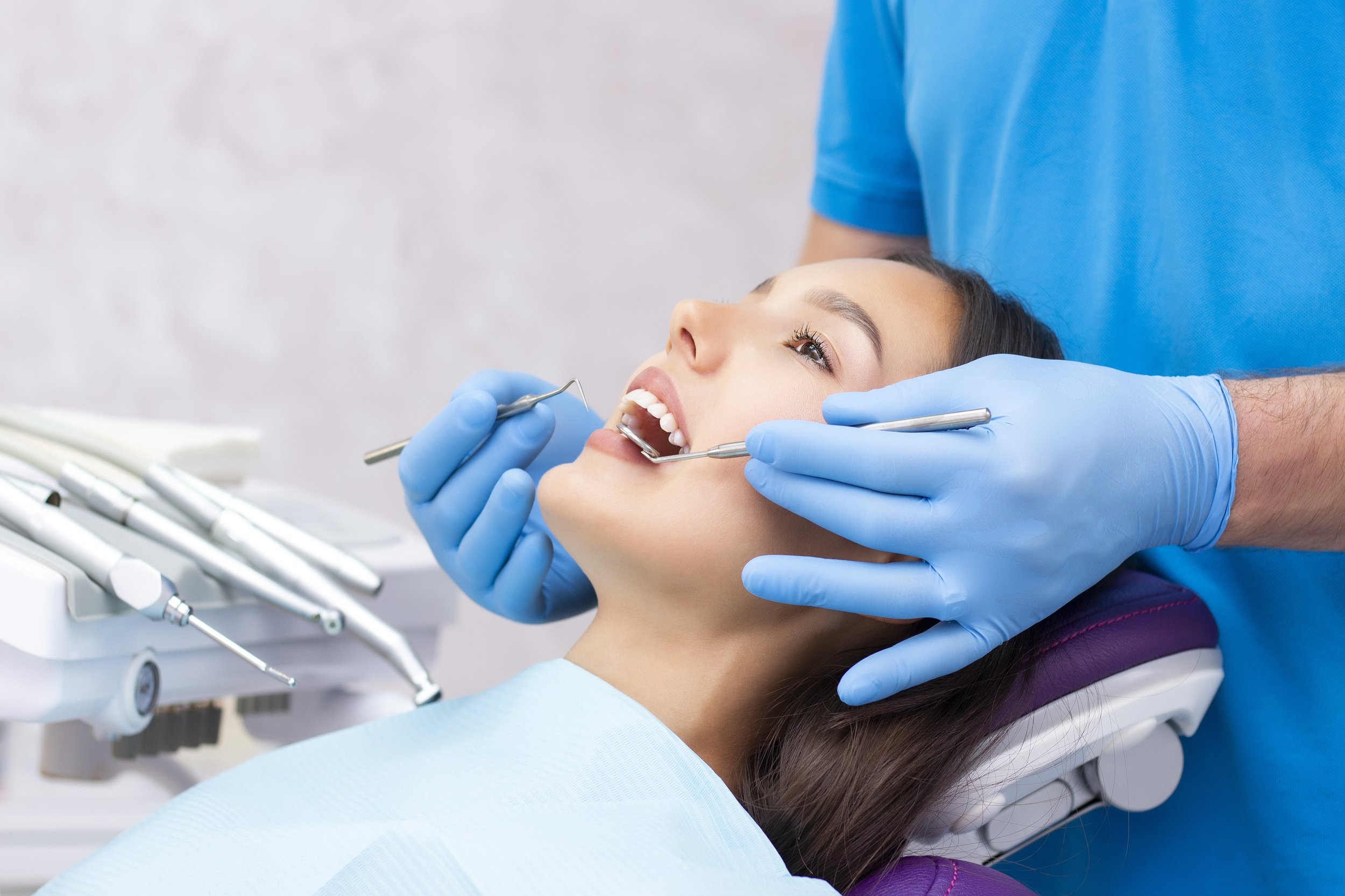Anyone in the medical industry will tell you that prevention is the best medicine. Still, according to Dental Health Org, 1 in 4 (25%) adults miss brushing twice a day with fluoride toothpaste. Plaque and tartar build up causing bacteria to attack your teeth and gums. As a result, 1 in 3 adults has tooth decay. Untreated tooth decay causes infection and inflammation to slowly and steadily destroy teeth and gums. What can you do? If you don’t want to be a part of the 6% of people living in the UK that have no natural teeth left or if you don’t want to have to deal with NHS shortages, check out those 5 simple ways to take care of your teeth and avoid tooth loss.
Contents
Brushing your teeth
Everybody knows that it is recommended that you brush your teeth twice a day for at least two minutes. After each meal food particles remain in the oral cavity and start building up. The process of brushing helps remove not only them but plaque as well.
Plaque is a thin coating of bacteria that forms on our teeth. Drinks and food react with plaque causing the production of acids. They are extremely harmful to our oral health as they attack the tooth enamel and cause bacteria-borne oral diseases like gum disease.
Dental plaque is relatively common and everyone has it to some extent. The easiest way to remove plaque is to brush twice a day with fluoride toothpaste. Some sources even recommend brushing with baking soda and salt as a home remedy for calculus removal.
If you fail to remove dental plaque regularly it can result in destroying tooth enamel which in turn causes cavities. What’s worse, it can harder into tartar which you no longer can remove at home. Tartar will make it extremely hard to keep your teeth clean and leaving it to build up will lead to inflammation and gum disease.

Electric or manual tooth brush
As long as you use a toothbrush to remove dental plaque and prevent oral diseases, both electric and manual toothbrushes are effective enough according to the ADA.
Still, there are a few more advantages in favour of electric toothbrushes. Due to the vibration and sturdier micromovements, they may be an optimal option for better plaque removal from your teeth.
Also, electric toothbrushes offer an easier alternative for people with limited mobility caused by a condition such as certain disabilities, carpal tunnel syndrome or arthritis.
Despite being more expensive than manual toothbrushes, they are the better alternative from a sustainability standpoint as they cause less waste.
Why flossing is important?
Apart from brushing your teeth regularly, you must make space for flossing in your oral health routine as well. This is a powerful tool that will help you prevent dental decay and gum disease. Approximately 90% of Brits have gum disease to some extent. It starts as gingivitis and grows into periodontitis (gum disease) if left untreated. The consequences are dire – the surrounding tissues that hold your teeth together get damaged due to bacteria accumulation and inflammation. Gum disease is one of the main reasons for tooth loss among adults on a global scale.
Did you know that the risk of developing gum disease increases further with age? More than 70% of people aged over 65 have gum disease. Wearing removable dentures significantly increases the odds if you don’t clean your dentures, bacteria can develop in the spaces between the dentures and the gums and cause further damage.
How to spot warning signs of gum disease?
Gum disease causes inflammation in the gum and teeth area and can lead to tooth loss. Some indications of periodontal disease presence may include loose teeth, redness and signs of inflammation, bad breath and bleeding gums among others.
Flossing is a powerful tool to help you maintain excellent oral hygiene, so here are 5 benefits for it:
- It helps prevent gum disease
- Removes bacteria that cause bad breath
- Helps remove food leftovers in places where the toothbrush can’t reach
- Reduces the risk of dental decay and cavities
- Cleans plaque below the gum line and prevents it from developing into tartar
When is the best time to floss?
According to the Nation Smile Month, less than a quarter of people use dental floss regularly and one in three have never used it. It is advisable to start early in life so that you can develop this good habit into adulthood.
Is mouthwash necessary?
Mouthwash is a great addition to your oral health routine. It helps give your mouth a good clean, kills bacteria that reside in your oral cavity and helps remove dental plaque. If you keep your end of the bargain and brush twice a day and floss regularly, mouthwash is not really necessary.
Still, if you have any specific oral conditions like a dry mouth, teeth sensitivity or dry socket, you may need to religiously use specialized mouthwash.
Mouthwash can be of two types:
- Therapeutic
- Cosmetic
The therapeutic one help reduce dental plaque, the early onset of gum disease (gingivitis), decay and bad breath. Depending on the purpose, they can be both available over the counter or prescription only.
The cosmetic mouthwash types don’t really have any chemical process or biological application besides the temporary effect of refreshing the breath. They do have a pleasant taste, however, it doesn’t kill bacteria-borne pathogens that promote bad breath but just solve the issue temporarily. On the other hand, therapeutic mouthwash does have active ingredients that have beneficial effects on conditions like gingivitis or bad breath.
All active ingredients in therapeutic mouthwash have their specific purpose such as:
- Fluoride – prevents tooth decay
- Chlorhexidine – Controls gingivitis and plaque
- Peroxide – whitening agent
- Cetylpyridinium chloride – bad breath reduction

Drink lots of water
Did you know that 60 million people in the UK do not have fluoridated water? Fluoride plays a vital part in the battle against cavities and dental decay. It binds to the tooth enamel and makes it more resistant to acidic attacks. It helps slow down the process of decay occurrence by building up essential minerals in the tooth enamel, essentially strengthening teeth.
Water also serves as a natural mouthwash as it cleans leftover food in the oral cavity. You need to get rid of these food remnants as bacteria feed on them. And to stay away from cavities, you need to get rid of harmful bacteria in the oral cavity. Water also dilutes harmful acids that destroy tooth enamel. That means you’d also better stay away from sugary beverages like soda or juice as they can raise the acidity level in your mouth.
Think about your saliva! Saliva is the oral cavity’s tool to naturally protect teeth and soft tissues against bacteria. Saliva is comprised of 99% water and serves to regulate pH levels in the mouth. It also facilitates the process of swallowing food and washes away food leftovers. If your oral cavity runs dry on saliva you’d be exposed to an elevated risk of dental decay.
What causes dry mouth?
Patients who have worn dentures for a long time, often find that they make them miss their natural teeth even more.
Wouldn’t it be great if there were a way to have them back? Sadly, this is not an option, but the next best thing to natural teeth is dental implants. They are a permanent solution to missing teeth and offer the same looks and functionality.
You don’t have to worry about your teeth slipping when eating or sneezing, or forgetting about removing them at night Forget the stress of going to a restaurant and worrying that your teeth may fall out while trying to enjoy your meal, or living with constant soreness from prosthetic teeth that never fit just right.
Bringing it all together
If you have lost your teeth as a result of poor oral habits or a medical condition, dental implants are the optimal long-term solution. They offer unmatchable aesthetics and durability that are even sturdier than regular tooth enamel. The best part – the maintenance is extremely easy – just look after them like you would after your natural teeth.


